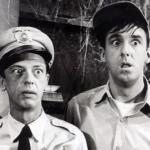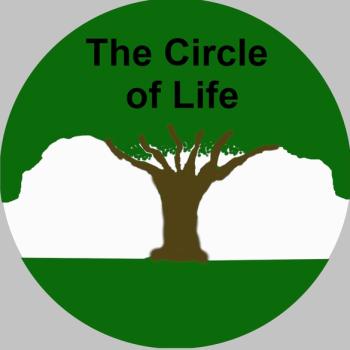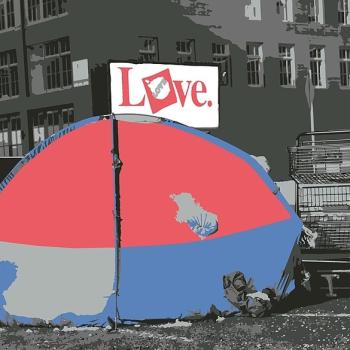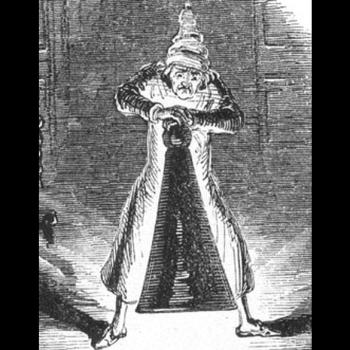~ What might happen if “unconditional” were applied to love? ~
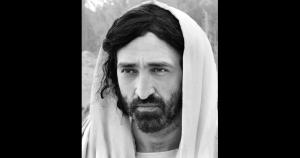
Jesus Christ is hosting a Q&A session in your church’s fellowship hall. A woman in the back of the room raises her hand.
“Yes,” Jesus says, pointing to the woman.
“Do you think the government is obligated to give public assistance to anyone who asks for it?” she says.
“By public assistance,” Jesus says, “do you mean help with healthcare and food and housing?”
“That’s right,” the woman says.
Jesus nods with a thoughtful look on his face.
“It sounds like you’ve given this question some thought,” says Jesus. “What do you think?”
Throats clear and a chair shuffles.
“Well, obviously we have to help those who can’t help themselves,” she says, “but there are a lot of people who abuse the system.”
“I see,” says Jesus. “So are you saying that not all of our neighbors deserve food and a place to live because of those who abuse the system?”
“Well … not exactly but, ah … what I mean is …”
“Are you saying that not all of our neighbors deserve to go to the hospital when they need care?” he continues. “That it’s okay for some families to live on the streets?”
The woman glances left and right, as if looking for help. Then she sighs.
“It’s just that we work so hard to pay our taxes,” she says with conviction, “and it hurts to know that our money gets into the wrong hands.”
“Hmm.” Jesus speaks with curiosity more than conviction. “And so you’re willing to penalize those who need help for the sake of the cheaters?”
“But Jesus,” the woman says with desperation, “we can’t afford to support everyone who refuses to pull their own weight. It would break the system!”
A sassy smile breaks out on Jesus’ face. “With all the money you all spend on fun, I’d hardly say that America is too poor to feed and clothe the poor.”
The woman shrugs and shakes her head. “But what about all that tax money going to buy drugs and weapons,” she pleads. “Nobody wants that happening here!”
“Of course you should use due diligence to prevent that from happening, but don’t penalize everyone,” says Jesus. “Love will cover the messy bits. You might recall the time my disciples wanted to know whose fault it was that a man was born blind.”
As Jesus takes several steps closer, a dramatic hush comes over the room. He breaks into a huge smile and the room seems to brighten.
“This blind man was a hopeless cause,” Jesus says with a glowing expression. “He had the face of a corpse with those ugly, shrunken eye sockets. Utterly hopeless! When the boys wanted to find someone to blame, I told them to quit it. It’s so easy for you folk to get stuck on blame. Then I asked myself, ‘What resources do we have on hand?’ For a moment, I thought, ‘Nothing.’ Then I felt the dirt under my toes. And I remembered playing in the mud when I was a kid. I remembered making swallows that you’d swear could fly. So I spat in the dirt, reached down and mashed it all together. This was all spontaneous, mind you. It was a reckless idea that just popped into my head. I only hoped that people wouldn’t think I was totally insane. The way I saw it, it was a sacred offering for this man. I didn’t have a penny but I had mud! It was the most down-to-earth, mundane, ridiculous offering you could imagine. So I rubbed it in the guy’s eyes and all of a sudden, he could see. What an irrational, glorious, love-infused moment!”
Jesus’ smile is contagious. You can’t help but send it back to him. A man in the front row raises his hand and Jesus acknowledges him.
“So what I hear you saying is that we should give whatever we can, no matter how insignificant it seems, and God will multiply that gift.”
“Exactly,” Jesus says with emphasis. “And don’t try to establish blame when people are hungry or naked or sick. When all your resources are gone — if all you have is dirt and spit — then make some holy mud. Do that and you will bring glory to the Father, while showing the world that God’s extravagant love never balks at lack of resources or impossible circumstances. But remember: You have to do the work of the Father now, because a dark time is coming when nobody will be able to work. So go out there and share your gifts with broken people.”
Jesus glances at his smartphone.
“I do apologize, but my calendar is telling me I have an 11:30 in Jakarta,” he says, “I hope you have enjoyed this as much as I have.”
Applause.
Over coffee and snacks, you run into your best friend Marion.
“Sounds too simple,” you confide to your friend. “My mind is telling me I’m not obligated to help any old beggar on the streets.”
“My mind is telling me the same thing,” says Marion.
Your friend’s spouse leans in and offers her unsolicited advice.
“Then maybe it’s about time you all start listening to your heart,” she says with glaring eyes.
Unable to endure her expression, you lower your eyes and stir more sugar into your coffee.
~~~~~~
If a free society cannot help the many who are poor, it cannot save the few who are rich. — John F. Kennedy[1]
The Bible insists that the best test of a nation’s righteousness is how it treats the poorest and most vulnerable in its midst. — Jim Wallis, Christian writer and social activist[2]
When I give food to the poor, they call me a saint. When I ask why the poor have no food, they call me a communist. — Archbishop Hélder Câmara[3]
I really only love God as much as I love the person I love the least. — Dorothy Day, co-founder of the Catholic Worker Movement[4]
Image by Jake Thomas, Wikimedia Commons.
[1] John F. Kennedy Quotes, Goodreads, www.goodreads.com/author/quotes/3047.John_F_Kennedy.
[2] Jim Wallis Quotes, Spirituality and Practice, www.spiritualityandpractice.com/explorations/teachers/jim-wallis/quotes.
[3] “Hélder Câmara Quotes,” Goodreads, www.goodreads.com/author/quotes/122030.H_lder_C_mara.
[4] “Dorothy Day Quotes,” Goodreads, www.goodreads.com/author/quotes/119043.Dorothy_Day.

